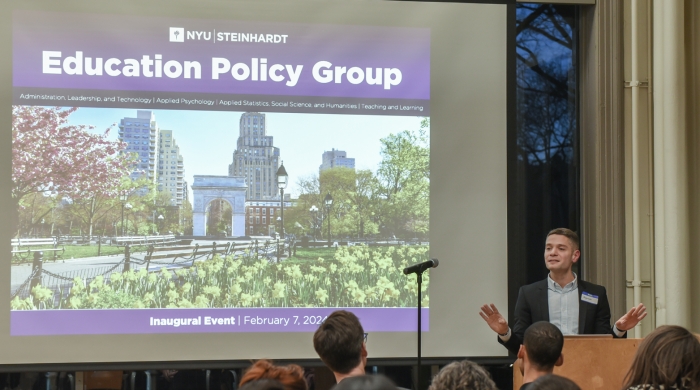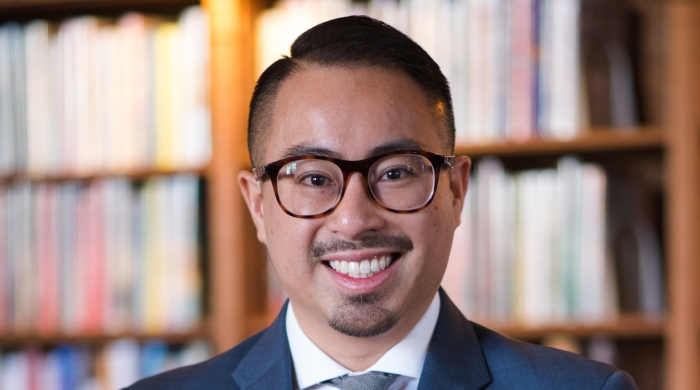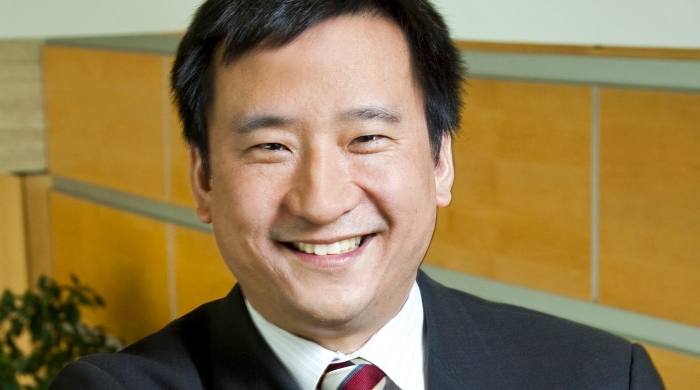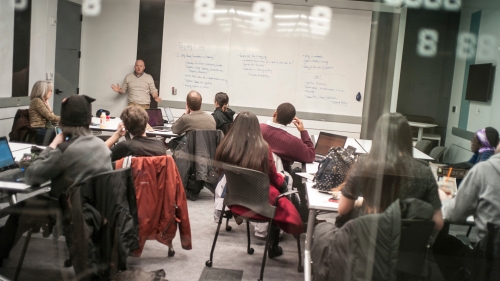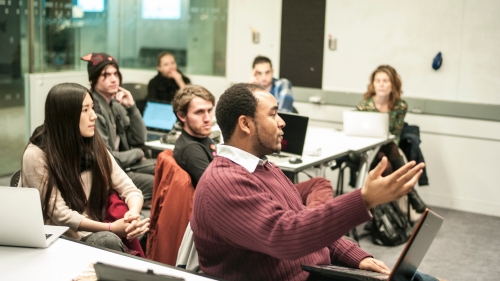Analysis of minority-serving institutions on the East and West Coasts demonstrates layered processes to build students’ capacities.
The model minority myth paints a picture of Asian Americans as a monolithic group with unparalleled success in academics. A new NYU Steinhardt study unpacks this myth, exploring the needs of Asian American, Native Hawaiian, and Pacific Islander students and how higher education institutions support these populations.
In 2007, Congress established a federal designation for higher education institutions that enroll at least 10 percent of undergraduate Asian American, Native Hawaiian, and Pacific Islander (AA&NHPI) students, and who enroll a significant proportion of students from low socioeconomic backgrounds. This designation as an Asian American and Native American Pacific Islander Serving Institution (AANAPISI) was among one of the newest categories of minority-serving institutions that receive federal funding to advance educational equity and support for ethnic and racial minorities.
In a two-site case study, Mike Hoa Nguyen, assistant professor of education at NYU Steinhardt, collected data from interviews, internal and public university documents, and observations of activities, courses, and meetings to determine the process in which AANAPISI programs expand students’ capacities through culturally relevant course work, mentorship, research, and civic engagement. His findings are published in The Review of Higher Education.
“AANAPISIs demonstrate a federal commitment to supporting the unique educational needs of AA&NHPI students, which are too often obscured by the model minority myth,” said Nguyen. “This myth dangerously asserts that Asian American students, and Native Hawaiian and Pacific Islander students by association, are universally successful and unparalleled in their academic achievements. AANAPISIs play a major role in addressing this problem, and in doing so, provide critical resources to uplift the students they serve. This study documents the process in which these colleges and universities engage in this important work.”
Nguyen's study centered on a large, public community college on the West Coast and a large, urban, regional public university on the East Coast. Nguyen’s findings related to the experiences of students in these programs.
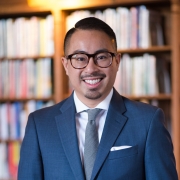
This study offers new understandings of the critical role that AANAPISIs play to expand educational opportunity and enrich learning experiences.
He uncovered a five-tiered process that the two institutions use to build opportunities for learning, practice, and engagement:
AA&NHPI Focused Course Work
At both institutions, courses focused on these populations are offered through the institutions’ Asian American Studies programs, where students are exposed to concepts connected to their racial and ethnic identities. One student shared her experience with a course, Asian Women in the United States: “Through my experience with that class I learned…for the first time, issues that affected my community. Specifically, me as an Asian American woman, specifically Vietnamese American…”
Teaching and Mentoring
Students who had previously taken AA&NHPI course work provided tutoring and mentoring to support new students with classwork, programs, books, and scholarship applications. According to one mentor, “Cambodian Americans fall through the cracks, we’re just not in higher ed…It’s not a supportive space for us…[the AANAPISI faculty] understand…from their own community work, from being on campus, and [from] teaching for so long that…when they find students who fit these demographics it makes sense for them to mentor them.”
Advanced AA&NHPI Focused Course Work
After serving as mentors, students often take more advanced courses focused on theoretical, historical, and contemporary issues regarding the AA&NHPI experience to continue their academics while gaining tools to make larger contributions toward their communities.
Academic and Research Development
Students who complete advanced course work are provided opportunities to engage in academic projects and research with faculty and staff, presenting research at conferences or publishing in peer-reviewed journals.
Professional and Community Experience
The final step in the process offers opportunities for students to engage in community-based projects, internships, and employment with partner organizations, government offices, or other schools. A student shared that his research experience led to the creation of a Vietnamese American organizing and training program. “[Researchers] found out that Vietnamese Americans in [the neighborhood] don't participate in civics or politics…they basically feel disenfranchised, like their vote doesn’t matter…So, the research showed that there needs to be an organization to help push and provide opportunities to talk about politics in a Vietnamese American progressive context…”
“AANAPISIs are the backbone for AA&NHPI students in higher education. These institutions account for six percent of all colleges and universities, yet enroll over 40 percent of all AA&NHPI undergraduates,” said Nguyen. “This study offers new understandings of the critical role that AANAPISIs play to expand educational opportunity and enrich learning experiences – which can be adopted beyond AANAPISIs and for other students – as well as inform the work of policymakers as they seek new solutions to refine and regulate the administration of minority-serving institutions.”
Funding for this study was provided by the UCLA Institute of American Cultures and the UCLA Asian American Studies Center.
Press Contact
(646) 469-8496
Related Articles
NYU Steinhardt Launches Education Policy Group
Cross-disciplinary initiative connects faculty and students involved in all aspects of education policy.
Researchers Launch Database with New Classification System for Minority-Serving Institutions in US
The MSI Data Project seeks to counter inaccurate and inconsistent MSI data used by federal agencies and researchers.
NYU Steinhardt Hosts Queens College President, Frank H. Wu
The NYU Steinhardt Institute for Higher Education Policy hosted the event, “Asian Americans in the Ivory Tower.”

